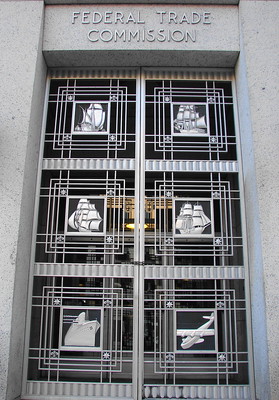
Federal Trade Commission Issues Rule Banning Non-Compete Agreements
UPDATE 08/20/2024: The federal court judge in the Northern District of Texas case Ryan LLC and Chamber of Commerce of the United States of America, et al. v. Federal Trade Commission issued an opinion on August 20, 2024 (earlier than previously expected) in which the court determined that the FTC lacked the requisite legal authority to issue the Final Rule banning non-compete agreements. The Final Rule was "set aside" and may not be enforced or otherwise take effect on September 4, 2024 or thereafter. This ruling may be appealed but, unless it is overruled by an appeals court, the Final Rule discussed below will not take effect.
On April 23, 2023, the Federal Trade Commission voted 3-2 to implement a final rule that would ban all non-compete agreements as an unfair method of competition, effective September 4, 2024 (barring any change resulting from current legal challenges).
The final rule’s ban would not apply to existing non-compete agreements entered into with “senior executives” – defined as those earning more than $151,146 and who were in a “policy-making position.” New non-compete agreements for these highly compensated senior executives are prohibited by the new rule, however.
The Final Rule likewise does not apply to non-compete agreements entered into by a person “pursuant to a bona fide sale of a business entity,” or a bona fide sale of the person’s “ownership interest in a business entity,” or a bona fide sale of “all or substantially all of a business entity’s operating assets.” The FTC, like many courts, appears then to recognize a difference between a non-compete agreement in an employment context and a similar agreement connected to the sale of a business.
A non-compete agreement is defined as a term or condition of employment “that prohibits a worker from, penalizes a worker for, or functions to prevent a worker from (i) seeking or accepting work in the United States with a different person where such work would begin after the conclusion of the employment that includes the term or condition; or (ii) operating a business in the United States after the conclusion of the employment that includes the term or condition.” "Worker” may be construed as an employee or an independent contractor.
The FTC final rule provides it is an unfair method of competition for a person to (1) enter into or attempt to enter into a non-compete clause, (2) to enforce or attempt to enforce a non-compete clause, or (3) to represent that a worker is subject to a non-compete clause.
On its face, the Final Rule does not ban other restrictive covenants such as non-solicitation and non-disclosure agreements in the employment context. However, the FTC does make clear that those types of clauses could operate as non-competes if drafted too broadly, in which case they would not be enforceable.
The Final Rule also requires that by September 4, 2024, employers provide notice to affected workers “that the worker’s non-compete clause will not be, and cannot legally be, enforced against the worker.” Companies that are found in violation of the rule may be subject to civil penalties as enforced by the FTC.
Certain employers may be excepted from the new non-compete rule including non-profits, banks, federal credit unions, air and common carriers, and those subject to the Packers and Stockyards Act.
The Final Rule is currently the subject of various lawsuits challenging the FTC’s legal authority to promulgate the Final Rule and seeking a stay of the Final Rule. Companies are encouraged to review the enforceability of any existing non-competition agreements as well as the enforceability and strategy of executing new non-competition agreements considering the new rule and ongoing legal challenges to the rule. A review of non-solicitation and non-disclosure agreements is also advisable.
If you have questions about the applicability or details of this Final Rule to your business or simply wish to speak with someone about next steps for compliance, Martin Pringle’s employment attorneys are available to assist in both Kansas and Missouri.
(Image via Seth Sawyers, creative commons license)